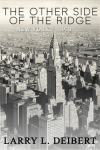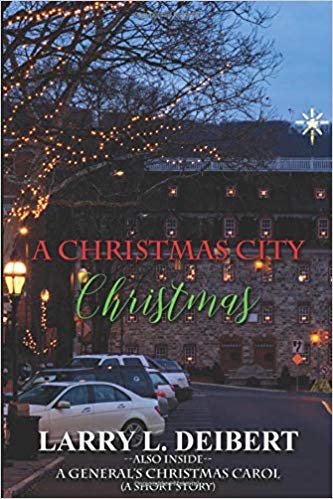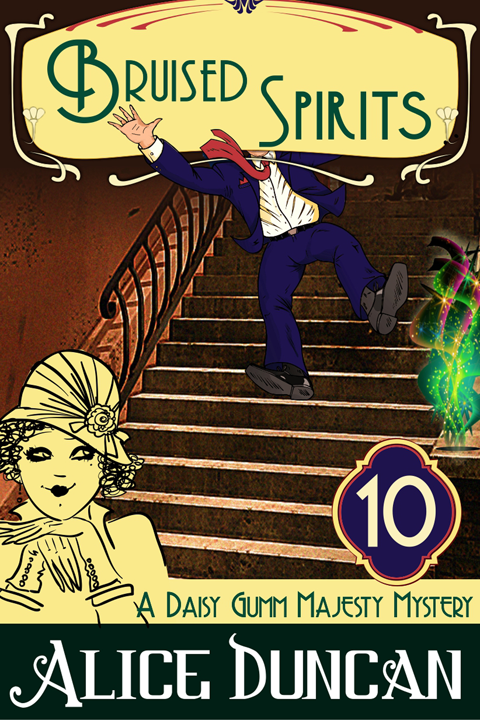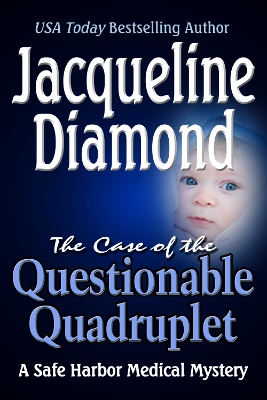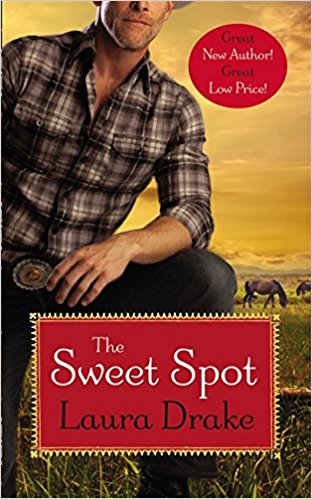My annual embarrassing high school Valentine’s Day short story by Jina Bacarr
February 11, 2025 by Jina Bacarr in category Jina’s Book Chat, Writing tagged as audio books, kissing, short story, Valentine's, Valentine's Day
Writers write what we know… even when it’s embarrassing.
Take my first kiss. High school. Drama class. Me, the shy new kid. And a snarky guy with a big ego.
Keep reading….it gets worse.
Valentine’s Day is a time for kissing.
But what if your first kiss was just plain awful?
Meet Riley Murphy. She’s a kissing virgin, waiting for the right guy to come along. Until she joins the Drama Club at Holywell High and has to kiss the class dweeb on stage in front of the whole school on Valentine’s Day.
==============================
VIRGIN KISS
Jina Bacarr
Introduction
What’s in a kiss? A kiss by any other name is—
—sweet, romantic, intimate, passionate, wet, sloppy, disgusting, probing, awful, nasty, sexy, tingly, and sometimes just plain wonderful.
But what if it’s your first kiss? And you have to pucker up in front of a live audience at your high school? What then?
Pass the Altoids, please.
The kiss-from-hell happened to me, Riley Murphy.
This is my story.
* * *
A few weeks before Valentine’s Day…
I’m the new kid at Holywell High School, a shy, skinny freshman with cinnamon-colored freckles sprinkled across my nose. Flat-chested. I’ll never be Miss Popularity with the bouncy boobs and flirty lashes.
I’m more like an olive stuck on the end of a toothpick.
Even with that dossier, I’m not a total dork. I’ve gotten pecks on the cheek and quick brushes on the lips, but I’ve yet to experience the soul-melting kisses you see in the flicks. The passionate lip-lock I’ve dreamed about, wrote about in my diary.
I’ve pined for that kiss, but it’s yet to happen to me. God knows, I’ll be in graduate school facing lifelong debt before the right pair of lips meet mine.
To overcome my shyness, my mom convinces me to try out for the Drama Club. Somehow I land the leading role in a one-act Chekhov play.Yes, Chekhov.
I play this mad, beautiful countess with passion and heart. I love it. I come alive on stage. I can do anything, be anybody, say anything, I can—
—kiss the male lead?
A gangly sophomore named Harold Brimwell with long, greasy hair and an upper lip curled in a perpetual snarl. He’s going to anoint my virgin lips with my first kiss?
Forget the Altoids. I need a stress pill.
I quit the play. They can find another dupe. Not me. I’m not going to let him use my lips for kissing practice.
Then I hear this little voice in my head telling me this is acting. Going through the motions at rehearsals and on stage don’t count on the kissing scale. I can pucker up with Harold on stage and still be a kissing virgin.
Right?
After my pep talk to myself, I sail through rehearsals, knowing my lines and ‘connecting to my character’ according to the director. He says I’m a natural, my emotions raw but real. This is amazing. Me, Riley Murphy, the kid who’s always the ‘new girl’ at school because we move around so much because of my dad’s job, found something she’s good at.
Then the trouble starts.
The director insists on method acting.We don’t rehearse the kiss. He wants a real kiss on stage, not a phony smooch.
Worse yet, we open on Valentine’s Day with a preview performance at the afternoon school assembly. Not only do I have to kiss this guy, I have to do it on the most romantic day of the year in front of the entire student body.
I dump the Altoids… along with my confidence down the toilet.
* * *
Valentine’s Day dawns rainy and cold. Perfect weather for a Russian play.
I arrive at the gym early, put on my makeup in the girls’ bathroom then, with my hands shaking, I hook up my long Victorian black lace dress borrowed from the costume department, the silk petticoats rustling around my feet. I’m way nervous, but something cool happens as I run my lines over and over, my fear slowly dissolving into a shaky confidence as I slip into my character’s skin. Humming ‘I will survive’, I check my props, my fingertips tingling as I pull on my snug dueling gloves, then twirl the dainty parasol over my head like a spinning top.
I grab the small pistol for my big dueling scene, then heave out a big breath, praying I don’t drop it and everybody laughs at me.
I save putting on my lipstick for last.
First, I gargle mint-flavored mouthwash until my lips turn green and my mouth goes numb. Next, I line my lips with Chekhovian, dark red lipstick and smack them together. Perfect. I’m ready for my lip close-up.
It’s showtime.
I’m so nervous when the lights come up, I garble my opening lines. Then I trip over my own feet and nearly crash into the backdrop. Hot tears form in my eyes, but I want this too bad to give up now. All my life, I’ve stayed in the shadows. If I fail now, I may never get the courage to try again. I ignore the smirks and catcalls and swish my long skirts around like a real countess to boost my confidence.
I can do this.
Somehow, I get my groove on and my theatre training takes over. I sail across the stage, chin up, shoulders back, my voice clear, my lines down to a T. I’m ‘in the moment’. Much to my relief, the dueling scene goes off without the pistols misfiring.
Then it’s time for…
… the kiss.
I’ll never forget the expression on Harold’s face when he takes two long strides toward me. A mixture of sadistic pleasure and baddass ‘tude comes over his face, as shiny and sweaty as his palms, freaking me out. Lower lip snarling, my co-star gives me that ‘I’ve got you now’ look all fired up in his eyes, pinning me to the wall.
My teeth chatter. My mouthwash stops working.
It’s so quiet in the high school gym you can hear the director chewing on the end of his pencil.
My heart pounds so hard I can’t get my breath on when Harold pulls me into his arms, yanking me around like I’m a dollar store rag doll and then—
—he slams his mouth onto mine.
Bile rises in my throat as he pushes my lips apart and thrusts his mushy, saliva-coated gum into my mouth, making me nauseous. I swear if my dress wasn’t hooked up so tight, I would have ralphed all over him. Before I can push him off me, he shoves his tongue down my throat, way down, nearly gagging me.
I start choking.
I can’t breathe. Oh, my God, I’m going to pass out.
No, I can’t, I won’t. I’m determined not to faint. I have to get him off me. No gum-chewing, phony-macho sophomore is going to get the best of me.
I’m an actress, I tell myself, so act!
With stars circling around in my pounding head, I pull up my strength and kick him in the shin. There.
Startled, he jerks backward, but not before he bites my lower lip.
What the—
I taste coppery blood. Fresh, oozing, smearing my perfectly-applied lipstick. I’m in shock, disbelieving. It can’t get any worse.
Can it?
It can.
Dabbing my bleeding lip with my silk sleeve, I struggle in his arms, but he holds me tight, slobbering all over me, licking my face, my throat, coating my skin with stringy gum. My ears won’t stop ringing. The audience is going crazy, yelling and shouting like they’re at a basketball game and I’m the bouncing ball.
No, no, he’s not going to take advantage of me. I worked hard to get this part, learn my lines. Practiced how to walk, how to find the core of my character. Gosh darn, this is the first time in my whole life I’ve come out of my shell and done something really special.
He’s not going to ruin it for me.
I have to do something. Fast.
The pistol.
Where is it? After the mock dueling scene, I threw the prop gun down on the round table. It has to be there, but where?
I reach out behind me, my nails catching on the lace doily… I twist my head just a little… yes, I see it. I edge the gun toward me, an inch at a time. Sweat oozes down my too-tight collar and my knees buckle, but I don’t give up.
Almost got it… there. My fingers wrap around the pearl-inlayed handle. I suck in a breath then, without losing my nerve, I jam the prop into his ribs. Hard. I yank my body with such fury, I rip the black silk sleeve right out of the armpit. It slides down my shoulder, but it doesn’t stop me.
‘Get your hands off me, you sloppy-kissing, gum-chewer!’ I yell, ignoring the script and re-writing Chekhov. ‘Or you’re getting an “F” in drama class.’
The director gasps. Loudly. But he doesn’t refute what I said.
‘Yeah, sure,’ Harold stutters, letting me go, raising up his hands and backing away. ‘Anything you say, Riley.’
‘That’s telling him!’ a girl yells from the audience.
Amy Zanderbar. His ex-girlfriend.
She’s not the only one. All the girls stand up and start chanting, ‘Go, Riley, go!’
Wow. I hit a nerve with the females sitting in the bleachers who had their share of bad kissers.
They love it.
The audience starts clapping wildly and stomping their feet and continue chanting my name. I break the fourth wall and give them a ‘V’ for Victory high sign until the chanting dies down, then my thespian instincts kick in and I get back into character, giving Chekhov his due and ending the play as he wrote it.
I’ll always remember this night when a shy freshman girl in a borrowed Victorian dress took on a snarky sophomore and became empowered to stand up for herself in front of the whole student body.
It changed my life.
* * *
Epilogue
We performed the one-act play for the next few nights without further incident, faking the kiss each time. Harold is cool, not attempting any more way-out kissing. For me, it’s strictly acting.
I’m still a virgin in lip-land.
But I’ll never forget V-Day and my experience with the gum-toting, kissing bandit. Not a bad guy, just a rotten kisser.
And in case you’re curious, next semester I do find the right pair of lips to land that first kiss.
A hottie junior. Jack Dwayne.
When Jack takes me in his arms and lowers his face to mine, I quiver with anticipation and soon discover a kiss isn’t just a kiss, it’s…
… magic.
Happy Valentine’s Day!
——————–
PS — yes, Riley is me, a shy freshman back in the day.
The Princess and the Stilettos video https://www.youtube.com/watch?v=5ELRFw_B720&ab_channel=JinaBacarr
Love Audio Books? My Boldwood Books are on sale at CHIRP!!

Dear Extra Squeeze, Do You Have Audio Book Tips?
January 31, 2021 by The Extra Squeeze in category The Extra Squeeze by The Extra Squeeze Team, Writing tagged as audio books, H.O. Charles, Jenny Jensen, Rebecca Forster., Robin Blakely, The Extra Squeeze Team
Dear Extra Squeeze Team, I am interested in audio books, but I do not know how to get started in that arena…what are your tips?
Robin Blakely
PR/Business Development coach for writers and artists; CEO, Creative Center of America; member, Forbes Coaches Council.
The most important thing is to evaluate and prepare to articulate what you want. Listen to audio books in the genre of your work. Find the best ones that resonate with you. Note who the voice talent is and what you like about their performances. Then, step back and listen to the best audio books in other genres. Sometimes there is a huge difference between what is good in one genre and what is good in another genre. Noticing what you like and don’t like becomes more apparent through comparisons. Researching what you like and why will strengthen your vision for the end product. If you know what you really want and can express it, you will be able to find the talent you want in the audio arena.

Jenny Jensen
Developmental editor who has worked for twenty plus years with new and established authors of both fiction and non-fiction, traditional and indie.
Not sure how much help I can offer as I know nothing about distributing audio books, but I can say that the place to begin is with the voice talent. I used to produce radio spots and one had to keep a book of voice talent and jump through audition hoops to find the voice that best fit the ad’s product and audience. It’s so much easier today.
There are hundreds of really fine voice actors on the internet and most of them have the equipment needed at their fingertips. The actor’s websites have links to examples of their work so all you have to do is listen and consider if that voice has the right intonation, quality, clarity and personality to be a good narrator for your particular story. That’s a pretty subjective decision, so no tips on that.
I do suggest, however, that you test enough of the actor’s handling of dialog to know if it will work. Do you like the way she handles a man’s voice? How does he handle female voices? Children? Old people? Surprise, Anger? Most actors, once contacted, will audition a passage from your work. Then be aware of how the actor handles the issue of rights.

Rebecca Forster
USA Today Bestselling author of 35 books, including the Witness series and the new Finn O’Brien series.
I’m the wrong person to ask about audio books. I am not an ‘audio’ reader and I proved it when a producer bought my series. I was asked to choose a narrator, and I did not choose well. I will eagerly read my colleagues suggestions and we’ll learn together.
H.O. Charles
Cover designer and author of the fantasy series, The Fireblade Array
I’ve yet to record mine, despite years of working on radio programs and in audio production! From a production perspective, you need a room with dampened sound (soft furnishings to absorb echo–think of a studio with egg cartons and foam on the walls). You need a good microphone and a lot of disk space. There’s probably a way of recording using a mobile phone, these days (I’m a bit out of date!), as their microphones are improving all the time.
Avoid mic pops – this is where your Ps and Bs thump the mic as you spit at it. Make your editing easier by enunciating clearly and repeating a whole line when you make a mistake. Keep your background noise (kicking the desk, pets, traffic…) to the absolute minimum. For editing, Adobe Audition has long been the best tool, but it requires some getting-used-to for those just learning. Audacity is free and much simpler for the newbie.
Practice your acting skills. There’s nothing more boring than a reader going through an entire novel in monotone. Listeners latch onto variation in pitch and tone, and emotion. You may feel ridiculous doing it, but it’ll sound much better in the final edit.

Ever wonder what industry professionals think about the issues that can really impact our careers? Each month The Extra Squeeze features a fresh topic related to books and publishing.
Amazon mover and shaker Rebecca Forster and her handpicked team of book professionals offer frank responses from the POV of each of their specialties — Writing, Editing, PR/Biz Development, and Cover Design.
If you have a question for The Extra Squeeze Team, use our handy dandy contact form.
LISTEN UP: The Making of an Audio Book
September 15, 2013 by A Slice of Orange in category Archives tagged as audio, audio books, create
LISTEN UP! THE MAKING OF AN AUDIO BOOK
May 15, 2013 by A Slice of Orange in category Archives tagged as audio, audio books, mystery, producer, thrillers, voiceover

I have written over 25 novels. Each one starts with voices in my head. By the time a book is done, I know every inflection, tonal change and speech pattern of every character. So, when I had the opportunity to create the audio versions of Hostile Witness and Silent Witness, I was excited. This, I thought, was going to be a breeze.
Listen Up….
February 25, 2013 by A Slice of Orange in category Archives tagged as audio books, eBooks, Library, OverddriveI’m not a techno maven, so please forgive my self-congratulation and delight at having figured out how to download digital audio titles (and eBooks) to my iPhone…from the Public Library.
Affiliate Links
A Slice of Orange is an affiliate with some of the booksellers listed on this website, including Barnes & Nobel, Books A Million, iBooks, Kobo, and Smashwords. This means A Slice of Orange may earn a small advertising fee from sales made through the links used on this website. There are reminders of these affiliate links on the pages for individual books.
Search A Slice of Orange
Find a Column
Archives
Featured Books
THE OTHER SIDE OF THE RIDGE, NEW YORK, 1930
Dan Rodin has once again transcended time...
More info →A CHRISTMAS CITY CHRISTMAS
Will they have a normal Christmas? Probably not.
More info →BRUISED SPIRITS
It's 1924 and Daisy Gumm bands with friends to help Lily Bannister, whose abusive husband nearly killed her.
More info →THE CASE OF THE QUESTIONABLE QUADRUPLET
A patient shares a puzzling secret with Dr. Darcy—and then someone kills her.
More info →Newsletter
Contributing Authors
Search A Slice of Orange
Find a Column
Archives
Authors in the Bookstore
- A. E. Decker
- A. J. Scudiere
- A.J. Sidransky
- Abby Collette
- Alanna Lucus
- Albert Marrin
- Alice Duncan
- Alina K. Field
- Alison Green Myers
- Andi Lawrencovna
- Andrew C Raiford
- Angela Pryce
- Aviva Vaughn
- Barbara Ankrum
- Bethlehem Writers Group, LLC
- Carol L. Wright
- Celeste Barclay
- Christina Alexandra
- Christopher D. Ochs
- Claire Davon
- Claire Naden
- Courtnee Turner Hoyle
- Courtney Annicchiarico
- D. Lieber
- Daniel V. Meier Jr.
- Debra Dixon
- Debra H. Goldstein
- Debra Holland
- Dee Ann Palmer
- Denise M. Colby
- Diane Benefiel
- Diane Sismour
- Dianna Sinovic
- DT Krippene
- E.B. Dawson
- Emilie Dallaire
- Emily Brightwell
- Emily PW Murphy
- Fae Rowen
- Faith L. Justice
- Frances Amati
- Geralyn Corcillo
- Glynnis Campbell
- Greg Jolley
- H. O. Charles
- Jaclyn Roché
- Jacqueline Diamond
- Janet Lynn and Will Zeilinger
- Jaya Mehta
- Jeff Baird
- Jenna Barwin
- Jenne Kern
- Jennifer D. Bokal
- Jennifer Lyon
- Jerome W. McFadden
- Jill Piscitello
- Jina Bacarr
- Jo A. Hiestand
- Jodi Bogert
- Jolina Petersheim
- Jonathan Maberry
- Joy Allyson
- Judy Duarte
- Justin Murphy
- Justine Davis
- Kat Martin
- Kidd Wadsworth
- Kitty Bucholtz
- Kristy Tate
- Larry Deibert
- Larry Hamilton
- Laura Drake
- Laurie Stevens
- Leslie Knowles
- Li-Ying Lundquist
- Linda Carroll-Bradd
- Linda Lappin
- Linda McLaughlin
- Linda O. Johnston
- Lisa Preston
- Lolo Paige
- Loran Holt
- Lynette M. Burrows
- Lyssa Kay Adams
- Madeline Ash
- Margarita Engle
- Marguerite Quantaine
- Marianne H. Donley
- Mary Castillo
- Maureen Klovers
- Megan Haskell
- Melanie Waterbury
- Melisa Rivero
- Melissa Chambers
- Melodie Winawer
- Meriam Wilhelm
- Mikel J. Wilson
- Mindy Neff
- Monica McCabe
- Nancy Brashear
- Neetu Malik
- Nikki Prince
- Once Upon Anthologies
- Paula Gail Benson
- Penny Reid
- Peter Barbour
- Priscilla Oliveras
- R. H. Kohno
- Rachel Hailey
- Ralph Hieb
- Ramcy Diek
- Ransom Stephens
- Rebecca Forster
- Renae Wrich
- Roxy Matthews
- Ryder Hunte Clancy
- Sally Paradysz
- Sheila Colón-Bagley
- Simone de Muñoz
- Sophie Barnes
- Susan Kaye Quinn
- Susan Lynn Meyer
- Susan Squires
- T. D. Fox
- Tara C. Allred
- Tara Lain
- Tari Lynn Jewett
- Terri Osburn
- Tracy Reed
- Vera Jane Cook
- Vicki Crum
- Writing Something Romantic
Affiliate Links
A Slice of Orange is an affiliate with some of the booksellers listed on this website, including Barnes & Nobel, Books A Million, iBooks, Kobo, and Smashwords. This means A Slice of Orange may earn a small advertising fee from sales made through the links used on this website. There are reminders of these affiliate links on the pages for individual books.


